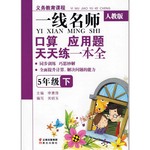题目内容
I shook hands with my father in the truck, and for a long time he looked straight ahead and didn’t say a word. But I knew he was going to say a little to me. “I can’t tell ,” he finally said. “I never went to college, andnone of your went to college. I can’t say don’t do this and do that, everything is different. And I don’t know is going to come up. I can’t help much with money, , but I think things will work out. ”
He gave me a new check-book(支票簿). “If you are short of money, a small check. But when you write one, send me a letter and let me how much. There are some things we can always sell.” In four years all the checks I wrote were less than a thousand dollars. My part-time jobs such as to the blind student and sitting with the teachers’ kids filled in the financial gaps.
“You know what you want to be, and they’ll tell you what to take,” my father went on. “When you get a job, be sure it’s honest, and work hard.”
Then my dad reached down beside his seat and brought the old, Bible that he had read so often. He didn’t say read this every morning. He just said, “This can help you if you will let it.”
Did it help? I got through college being a burden on the family. I have been able to make money since.
He gave me a new check-book(支票簿). “If you are short of money, a small check. But when you write one, send me a letter and let me how much. There are some things we can always sell.” In four years all the checks I wrote were less than a thousand dollars. My part-time jobs such as to the blind student and sitting with the teachers’ kids filled in the financial gaps.
“You know what you want to be, and they’ll tell you what to take,” my father went on. “When you get a job, be sure it’s honest, and work hard.”
Then my dad reached down beside his seat and brought the old, Bible that he had read so often. He didn’t say read this every morning. He just said, “This can help you if you will let it.”
Did it help? I got through college being a burden on the family. I have been able to make money since.
| 小题1: |
|
| 小题2: |
|
| 小题3: |
|
| 小题4: |
|
| 小题5: |
|
| 小题6: |
|
| 小题7: |
|
| 小题8: |
|
| 小题9: |
|
| 小题10: |
|
小题1:B
小题2:C
小题3:D
小题4:B
小题5:C
小题6:A
小题7:D
小题8:B
小题9:C
小题10:A
试题解析:本文大意:爸爸送我上大学时,握着我的手,直视着前方。后来和我说了一些话,然后给了我一个支票本,让我需要钱的时候,写一张,但是要写信告诉他是多少。他从座位下拿出一本破旧的圣经给我,告诉我如果我让它有帮助它就会有帮助。我上大学没有成为家人的负担,因为从那时起我就开始兼职挣钱了。
小题1:考查代词。句意:我不能说什么。 everything每件事物, anything任何事物,nothing没有东西,something某事物。anything用于否定句,可知答案选B
小题2:考查名词。句意:我从没上过大学,你的哥哥们也没有上过大学的。sister姐妹,mother妈妈,brothers兄弟,father爸爸。none of后接复数名词,可知答案选C
小题3:考查连词。句意:我不能说做这个或做那个,因为每件事都不一样了。so所以, if如果,when当……时,because因为。两句话为因果关系,可知答案选D
小题4:考查代词。句意:我不知道要发生什么。在宾语从句中that无意义,what什么,which哪个,whom谁。 come up发生,根据语境可知是发生什么事情,故答案选B
小题5:考查副词。句意:我也不能在钱上帮太多。too也,also也, either也,as well也。either用于否可知答案选C
小题6:考查动词。句意:如果你缺钱,写张小额支票。 write写, borrow借,buy买,sell卖。根据He gave me a new check-book他给我一个新的支票本,可知答案选A
小题7:考查不定式。句意:但是当你写一张支票时,给我寄封信,让我知道是多少。let后接省to不定式,可知答案选D
小题8:考查动名词。句意:我的兼职工作如给盲人学生读书和与充满金融差距的老师的孩子们坐在一起。 such as例如,后接动名词,可知答案选B
小题9:考查形容词。句意:然后我爸爸伸手从座位下拿出一本破旧的圣经,他读了很多次。 beautiful漂亮的, fine好的,broken破的, complete完整的。 根据he had read so often他读了很多次。可知答案选C
小题10:考查介词。句意:没有成为家人的负担上了大学。 without没有, by通过、用, during在……期间,with有、用;根据I have been able to make money since从那时起我已经能挣钱了,可知答案选A

练习册系列答案
 新课标同步训练系列答案
新课标同步训练系列答案 一线名师口算应用题天天练一本全系列答案
一线名师口算应用题天天练一本全系列答案
相关题目